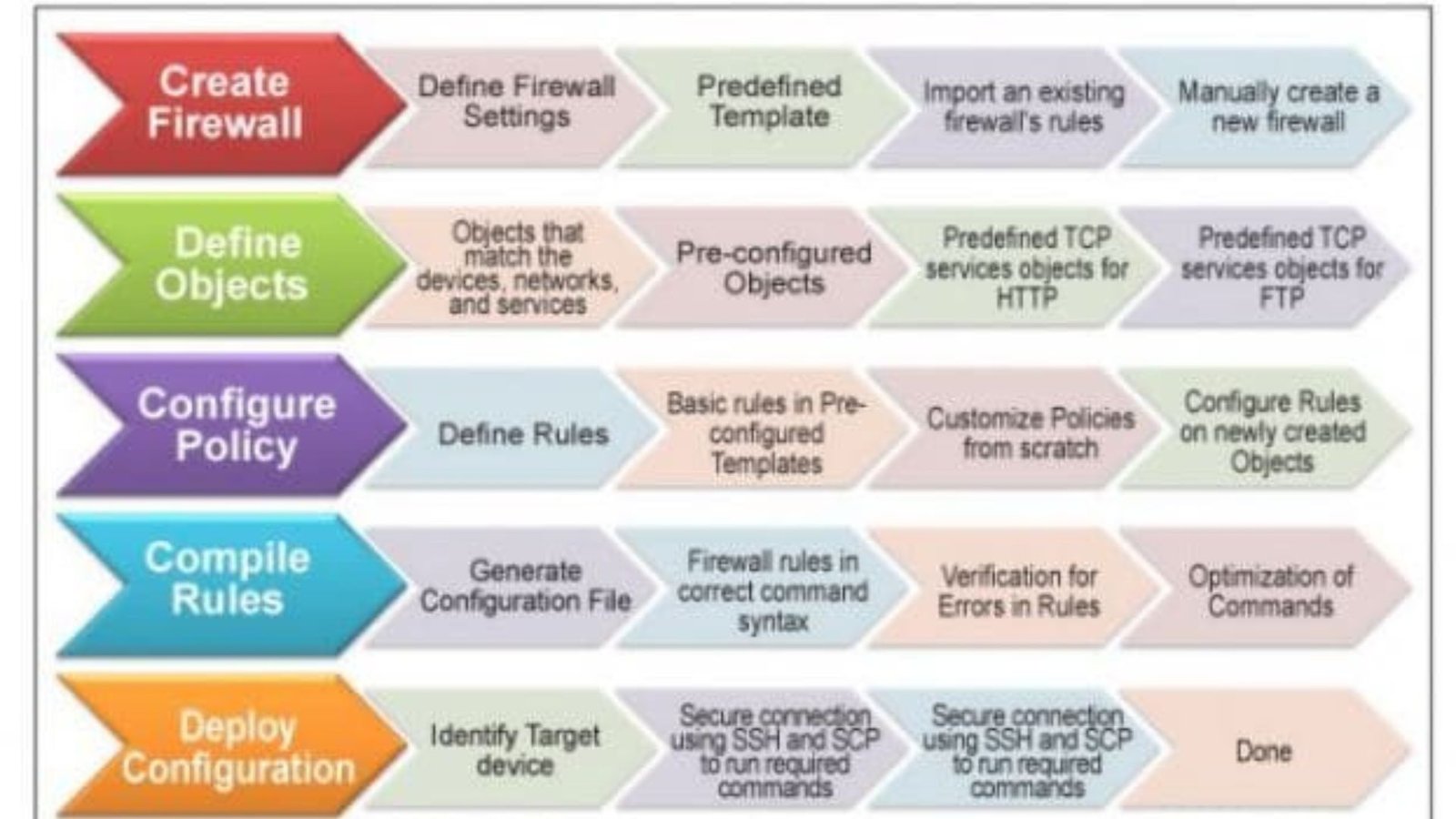Firewalls are essential tools in protecting your online data. They act as barriers between your computer and potential threats. Whether you are browsing the internet or running a business, firewalls play a key role in cybersecurity.
What Is a Firewall?
A firewall is a security device that monitors incoming and outgoing network traffic. It decides whether to allow or block specific traffic based on a set of security rules. Think of a firewall as a gatekeeper that controls access to your network. It keeps harmful data out while allowing safe data in.
Types of Firewalls
There are different types of firewalls, each designed to suit specific needs:
- Packet-Filtering Firewalls: These are the simplest and most common firewalls. They inspect packets of data and block them based on rules like IP addresses and port numbers. Packet-filtering firewalls are fast but can’t inspect the data inside the packets.
- Stateful Inspection Firewalls: These firewalls track the state of active connections. They make decisions based on the state of the connection and the rules set by the user. Stateful inspection firewalls provide more security than packet-filtering firewalls.
- Proxy Firewalls: Proxy firewalls act as intermediaries between your computer and the internet. They make requests on behalf of the user and can inspect data in detail. Proxy firewalls provide a high level of security but may slow down network performance.
- Next-Generation Firewalls (NGFW): NGFWs offer advanced features like deep packet inspection, intrusion prevention, and malware filtering. They combine traditional firewall technology with advanced security features, making them ideal for modern threats.
Revisiting the Thrill of King Johnnie Online Baccarat
Baccarat remains a popular choice for those seeking dynamic and engaging digital entertainment. The game’s simplicity and potential for exciting wins make it appealing. To enjoy this classic card game online, revisit king johnnie online baccarat. This platform offers a seamless interface and the opportunity to experience the excitement of the game whenever you desire.
Exploring Diverse Digital Experiences
OneCatWeb.com provides web solutions and highlights the vast potential of the internet for various applications. Beyond building and managing websites, the online world also offers a wide array of entertainment options for personal enjoyment. For those seeking engaging digital games, exploring platforms that feature online slots in canada can provide a different kind of stimulating online experience. Always remember to engage responsibly and enjoy the diverse facets of the digital world.
How Firewalls Work
Firewalls use a set of predefined rules to allow or block data. When data tries to enter your network, the firewall inspects it. If the data matches the rules, the firewall lets it pass. If not, it blocks the data to protect your system. These rules can be customized to meet your specific security needs.
Why You Need a Firewall
Firewalls are crucial for protecting your personal and business data. They prevent unauthorized access and block malicious software from infecting your devices. Without a firewall, your data could be at risk from hackers, malware, and other cyber threats. Firewalls also help in managing network traffic, ensuring that only safe and necessary data gets through.
Common Firewall Configurations
Firewalls can be set up in different ways to suit your security needs:
- Personal Firewalls: These are software-based firewalls installed on individual devices. They protect your computer from internet threats by controlling network traffic.
- Network Firewalls: These are hardware or software devices placed at the network’s edge. They protect the entire network by monitoring and filtering data between the internet and the network.
- Cloud Firewalls: These firewalls are hosted in the cloud and provide scalable protection for cloud-based services. They are ideal for businesses using cloud applications.
Discover Exciting Online Entertainment
Explore a variety of entertainment and gaming experiences at www.jackpotjill.games. This platform provides diverse options for users seeking engaging online activities. Visit today to explore more!
Setting Up a Firewall
Setting up a firewall is straightforward. Most operating systems include built-in firewalls that you can activate with a few clicks. For advanced protection, you may consider dedicated firewall hardware or cloud-based solutions. Always keep your firewall updated to protect against the latest threats.
Tips for Using Firewalls Effectively
- Regularly Update Rules: Keep your firewall rules updated to protect against new threats.
- Monitor Alerts: Pay attention to firewall alerts and take action when necessary.
- Use Alongside Other Security Tools: Firewalls are most effective when used with antivirus software and other security measures.
Conclusion
Firewalls are vital in today’s digital world. They provide a first line of defense against cyber threats. By understanding how they work and setting them up correctly, you can protect your data and ensure safe internet use. Whether for personal use or business, make sure you have a firewall in place.










